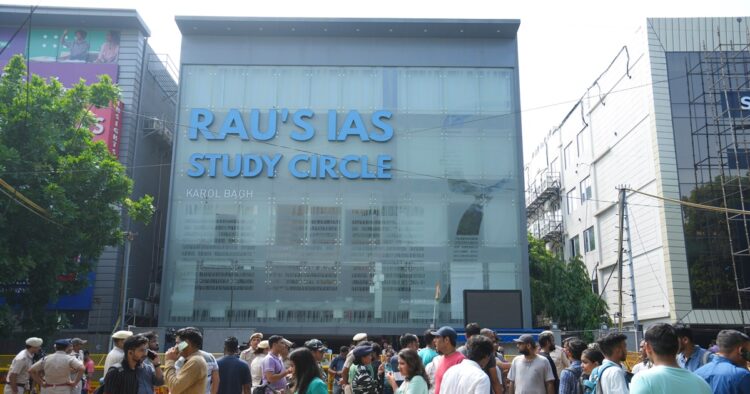Rau’s IAS Study Circle has announced that it will provide Rs 50 lakh each as compensation to the families of the three students who tragically drowned in the coaching institute’s basement in Delhi. The drowning incident occurred after heavy water accumulated in the basement, and the victims were students preparing for their exams at the institute.
According to advocate Mohit Saraf, who spoke on behalf of the institute, the compensation will be paid in two installments. The first Rs 25 lakh will be provided immediately, and the remaining Rs 25 lakh will be given once the CEO of the organization, Abhishek Gupta, can meet the financial requirements.
Saraf assured that the final payment would be made within six months. He emphasized that he was merely delivering the message and that different people have varied expectations regarding compensation.
The tragic incident took place in Delhi’s Old Rajendra Nagar area. Water from outside the building had filled up the basement where the students were present. As a result, the students drowned. Following the incident, the police have arrested several individuals, including Abhishek Gupta, the CEO of Rau’s IAS Study Circle, in connection with the case.
In a related legal development, the police also arrested Manuj Kathuria, the driver of an SUV who was passing by the coaching institute at the time of the incident. The authorities claimed that water displaced by Kathuria’s vehicle contributed to the flooding in the basement. However, Kathuria was recently released on bail by a local court.
The court’s decision came after the prosecution chose to drop the more severe charge of culpable homicide not amounting to murder against Kathuria. The judge, Additional Sessions Judge Rakesh Kumar, granted bail to Kathuria but instructed him not to make any comments about the case to the media.
Kathuria’s defense lawyer, Senior Advocate Vikas Pahwa, argued that the prosecution had not provided critical scientific evidence necessary to establish a direct link between Kathuria’s actions and the damage caused. Specifically, Pahwa highlighted the absence of essential data such as the volume of water on the road, the amount of water displaced by Kathuria’s SUV, and the tensile strength of the iron door that was reportedly affected.
Without this data, Pahwa argued, it is challenging to prove that Kathuria’s vehicle directly contributed to the flooding and the subsequent tragedy.
The case continues to unfold as authorities and legal representatives work to address the complex issues surrounding this unfortunate incident.

















Comments